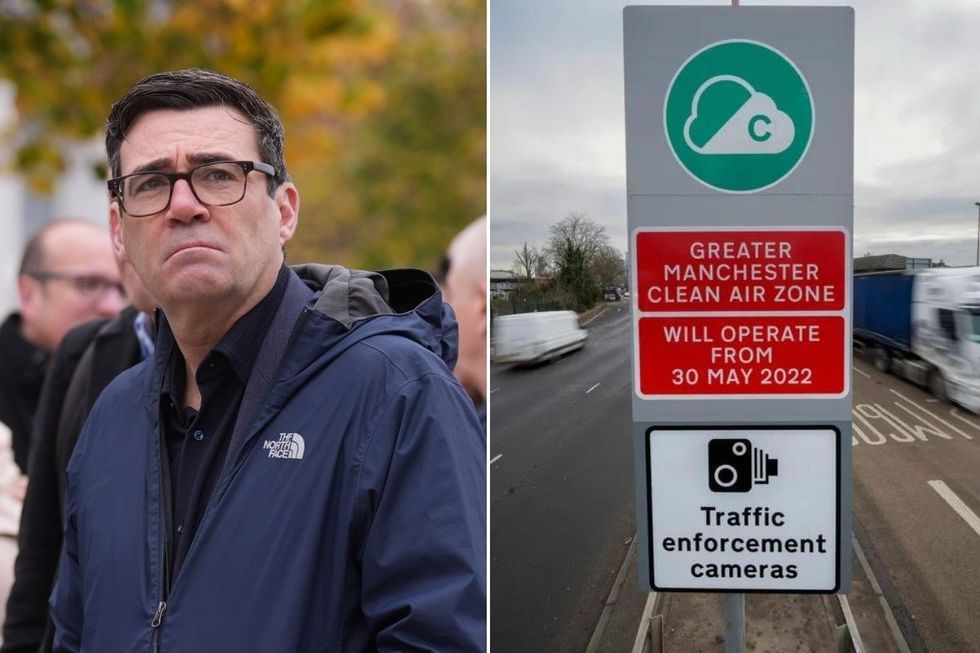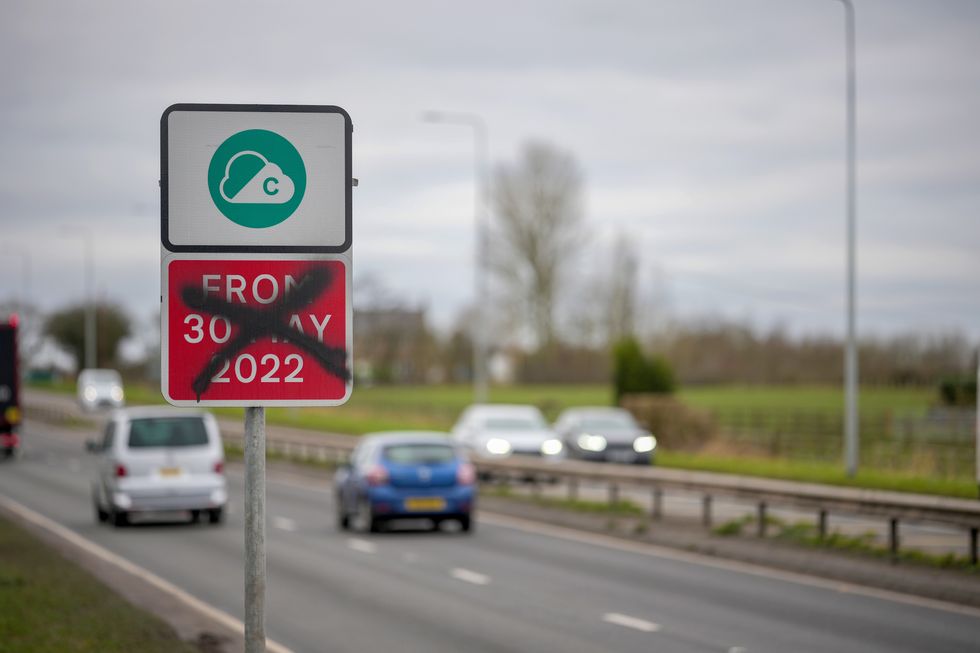Manchester could be forced to pay back £22million after scrapping Clean Air Zone plans
Greater Manchester could be forced to return more than £22million that had previously been earmarked for its Clean Air Zone after the local authority announced it would be scrapping previous plans.
In January, Clean Air Greater Manchester unveiled plans to further cut emissions across the region through an investment-led plan for clean air, rather than a charging model used by cities across the UK.
It was announced that Greater Manchester would benefit from 117 new lower and zero emission buses in an £86million scheme to slash harmful emissions rates.
Greater Manchester argued that it would be able to meet Government pollution targets more quickly through investment measures rather than a charging scheme for drivers.
Do you have a story you’d like to share? Get in touch by emailing motoring@gbnews.uk

The Clean Air Zone, which was originally meant to be rolled out in May 2022, would have been one of the largest emissions-based charging zones in Europe.
The move was backed by Greater Manchester Mayor Andy Burnham who said he was grateful that the Government had agreed to the investment-led approach to improve air quality.
He said: “This is the right decision for Greater Manchester and it gives people here the certainty they have long needed.”
As part of the new rules, local leaders were told they could review and cancel contracts relating to the Clean Air Zones, including signs and cameras.
READ MORE: Petrol and diesel drivers issued fresh Manchester Clean Air Zone update after two-year delay
Reports now suggest that Greater Manchester will have to pay back £22.5million to the Government, according to Manchester Evening News.
Originally, Greater Manchester had been given almost £211million for its Clean Air Plan, with £375,000 being spent every month on the 462 Automatic Number Plate Recognition (ANPR) cameras around the region.
A spokesperson for the Department for Environment, Food and Rural Affairs (Defra) said the extra £22.5million of funding approved from the Clean Taxi Fund would need to be returned to the Government.
The spokesperson added that the money would be spent on alternative schemes to cut emissions, with further information expected “in due course”.
Clean Air GM said £51.1million would go to bus investment, £5million for local traffic management measures, £8million to support taxi drivers in accessing cleaner vehicles and £21.9million for “administration, delivery, monitoring and other associated costs”.
Future of Roads Minister Lilian Greenwood praised Greater Manchester for the rollout of the Bee Network bus service, describing it as “groundbreaking”.
She added that the region was making “fantastic progress” in building a modern, sustainable and integrated transport network.
Burnham thanked Environment Secretary Steve Reed and Transport Secretary Heidi Alexander for backing Greater Manchester with the unique approach to cutting emissions.
LATEST DEVELOPMENTS:
- Labour ‘must commit to ban self-charging hybrids from 2030’ as law changes could ‘spook’ EV sales
- National speed limit changes could see HGVs move faster than cars on major roads putting ‘lives at risk’
- M23 chaos: Drivers warned of severe delays near Gatwick Airport causing cars to crawl at 10mph

Speaking previously to GB News, Burnham hailed the Bee Network as a rousing success with the rollout of British-made electric buses.
He added: “We will now continue to work towards an all-electric bus fleet whilst investing in local traffic measures and supporting our GM-licensed taxi drivers to upgrade to cleaner vehicles.”

